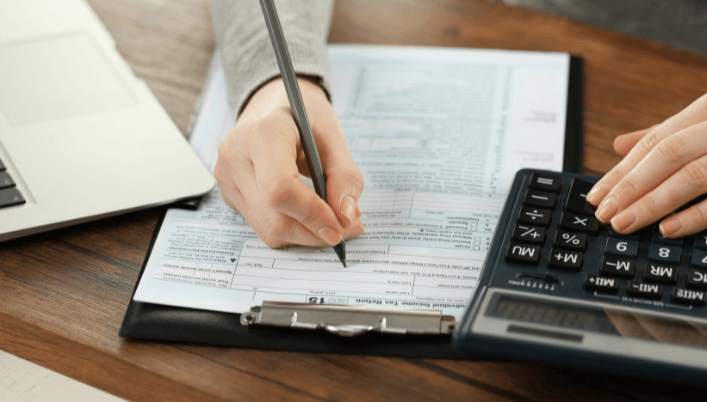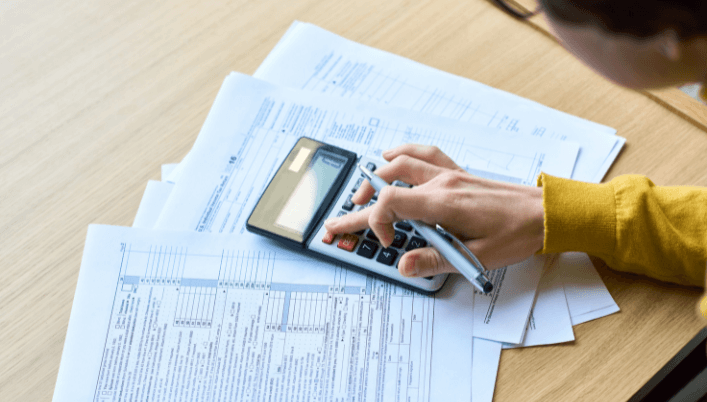Income tax Singapore: Individual Income Tax

Personal income tax rates in Singapore
Singapore has a progressive tax system, which means that individuals with higher incomes are subject to higher tax rates.
The personal income tax rates in Singapore range from 0% to 22%, depending on the chargeable income.
Chargeable income refers to the taxable income after deducting personal reliefs and expenses.
Tax residents in Singapore are individuals who have established a tax residency status in the country.
They are subject to resident tax rates, which are generally lower than the non-resident tax rates.
To qualify as a tax resident, an individual must spend at least 183 days in Singapore in a calendar year or be a Singaporean citizen or Permanent Resident (PR).
In Singapore, personal income tax rates are based on your auto-included income, which can be obtained from your tax bill.
The tax year in Singapore runs from January 1 to December 31, and your tax return must be filed within 30 days from the date of your tax bill.
The income taxable in Singapore includes all income earned in Singapore in the preceding year, including employment income, rental income, and business income.
However, certain types of income, such as interest income from Singapore banks and dividends received from companies in Singapore, may be exempted from tax.
The tax in Singapore is assessed on a progressive system, with different tax rates applying to different income brackets.
There are currently seven tax brackets, ranging from 0% for the first S$20,000 of chargeable income to 22% for chargeable income over S$320,000.
Additionally, there is a personal tax relief system in place to help reduce the amount of tax payable.
If you have entered Singapore or worked in Singapore on or after 1 January 2023 and your annual income exceeds S$22,000, you will be assessed to tax in Singapore.
For non-residents of Singapore, only income derived from employment in Singapore is chargeable to tax.
It is important to note that the taxability of income may also be subject to any applicable double tax agreements between Singapore and other countries.
If you have any further questions regarding personal income tax rates in Singapore, it is advisable to contact the Inland Revenue Authority of Singapore (IRAS) for up-to-date information and clarification.
You can find their contact details on their official website.
Additionally, if you are a company in Singapore and make payments to non-resident individuals or entities, you may also be required to withhold tax from these payments as per the withholding tax regulations in Singapore.
Overall, understanding the personal income tax rates and regulations in Singapore is crucial to ensure compliance and proper management of your tax affairs.
Singapore resident tax rates
For tax resident individuals, the current resident tax rates in Singapore are as follows:
- First $20,000: 0%
- Next $10,000: 2%
- Next $10,000: 3.5%
- Next $40,000: 7%
- Next $40,000: 11.5%
- Next $40,000: 15%
- Next $40,000: 18%
- Next $40,000: 19%
- Above $320,000: 22%
It is important to note that these rates apply to deceased individuals as well.
Additionally, Singapore does not impose capital gains tax, meaning that any gains from the sale of investments or properties are not subject to tax.
Non-resident tax rates
Non-resident individuals in Singapore are subject to different tax rates compared to residents.
The non-resident tax rates are generally higher and range from 15% to 22%.
Non-resident directors, professionals, and other individuals who derive income from Singapore are also subject to these rates.
Non-resident individuals who render services in Singapore and earn an annual income of more than $22,000 or hold employment for more than 60 days are required to file their income tax returns.
It is worth noting that overseas employment income is generally not taxable for non-residents, except for cases where the employment is exercised in Singapore for a period exceeding 60 days.
In such cases, the income derived from Singapore employment is subject to tax.
https://www.youtube.com/watch?v=srrfcnNA38o
Overall, understanding the income tax rates in Singapore is essential for both residents and non-residents to fulfill their tax obligations accurately and efficiently.
Key Takeaways
- Progressive Tax System: Singapore uses a progressive tax system with rates ranging from 0% to 22%, depending on chargeable income. Higher incomes are subject to higher tax rates.
- Tax Residency: Tax residents in Singapore are individuals who spend at least 183 days in the country in a calendar year or are Singaporean citizens or Permanent Residents (PR). They are subject to lower resident tax rates.
- Resident Tax Rates: For tax residents, tax rates range from 0% for the first $20,000 of income to 22% for income above $320,000. These rates also apply to deceased individuals. Singapore does not impose capital gains tax.
- Non-Resident Tax Rates: Non-residents in Singapore face higher tax rates ranging from 15% to 22%. Non-residents who earn income in Singapore may be required to file income tax returns.
- Income Tax Filing: Certain criteria, such as tax residency, minimum income, and overseas income, determine whether an individual or non-resident needs to file an income tax return in Singapore.
- Filing Methods: Taxpayers can choose between e-filing or paper forms to submit their tax returns. E-filing is recommended for convenience and faster processing.
- Common Filing Mistakes: To ensure accuracy and efficiency, it’s important to avoid common mistakes like incorrect deductions and overstating expenses when filing taxes.
- Tax Reliefs and Deductions: Singapore offers personal and employment-related tax reliefs that can reduce taxable income and lower tax liability.
- Payment Methods: Various methods, such as internet banking and AXS stations, are available for making tax payments in Singapore. Cash payments are not accepted.
- Due Dates and Consequences: Understanding the due dates for tax payments is essential to avoid penalties, as non-payment can lead to enforcement actions such as frozen accounts and legal action.
- Getting Help with Income Tax: Taxpayers can contact the Inland Revenue Authority of Singapore (IRAS) for assistance, hire tax professionals for expert guidance, and explore resources to navigate income tax obligations.
Filing your income tax return in Singapore: Tax Filing

Who needs to file an income tax return?
In Singapore, individuals who meet certain criteria are required to file an income tax return.
These criteria include being a tax resident, earning a minimum annual income, or receiving income from overseas sources.
Non-resident individuals may also need to file a tax return if they have earned Singapore-sourced income or have been employed by a foreign employer in Singapore.
How to file your income tax return
To file your income tax return, you can choose between e-filing or filing a paper form.
The e-filing option is recommended as it is more convenient and ensures faster processing.
You can file your tax return online using the Inland Revenue Authority of Singapore’s (IRAS) myTax portal.
If you prefer to file a paper form, you can obtain it from the IRAS website or designated collection points.
Ensure that you meet the tax filing requirements, including having all your relevant documents, such as income statements, deductions, and relief claims, ready for submission.
The annual filing deadline for submitting income tax returns in Singapore is typically on April 15th of the following year.
Common income tax filing mistakes
When filing your income tax return, it’s important to avoid common mistakes that could lead to errors or delays in processing.
Some common mistakes include claiming inappropriate deductions, incorrect claim of relief claims, or overstating expense claims.
Make sure to carefully review your tax return before submitting it to minimize errors.
https://www.youtube.com/watch?v=BxhNHLsZHto
By understanding the requirements and avoiding common filing mistakes, you can ensure a smooth and accurate income tax filing process in Singapore.
References:
- IRAS: Individual Income Tax Rates
- IRAS: Filing of Tax Returns
- IRAS: Common Mistakes in Reporting Income & Deductions
Tax reliefs and deductions in Singapore

Personal tax reliefs
When it comes to income tax in Singapore, personal tax relief plays a crucial role.
These reliefs help to reduce your taxable income, resulting in a lower tax bill.
Some of the common personal tax reliefs include:
- Tax reliefs for children: Parents can claim reliefs for their children, such as the Qualifying Child Relief and the Handicapped Child Relief. These reliefs aim to ease the financial burden of raising a child.
- Spouse relief: If you are supporting your spouse, you can claim the spouse relief to reduce your taxable income.
- Parent relief: Taking care of your parents also comes with its relief, which can be claimed to reduce your tax liability.
- Working mother’s child relief: Working mothers can benefit from this relief, which aims to support their employment while caring for their children.
Employment income tax reliefs
For employees, there are specific tax reliefs related to employment income.
These include:
- Employment expenses: If you incur expenses in the course of your employment, you may be able to claim tax relief for these expenses.
- Employer-provided stock options: If your employer has provided stock options as part of your remuneration, there may be tax relief available on the gains from these options.
- Business travel expenses: If you travel for business purposes, you may be eligible to claim tax relief for these expenses.
Other tax reliefs and deductions
Apart from personal and employment-related reliefs, there are other tax reliefs and deductions in Singapore.
These include:
- Deduction for Donations: If you make donations to approved charities, you can claim tax deductions for these donations.
- Non-participating employers: If you are not a participating employer in the Central Provident Fund (CPF) scheme, you can claim tax relief for contributions made to an approved pension or provident fund.
- Deduction for business assets: If you own business assets, you can claim capital allowances or deductions for the depreciation of these assets.
Overall, understanding the various tax reliefs and deductions available in Singapore can help you optimize your tax situation and potentially lower your tax liability.
It is important to consult a tax professional or refer to the Inland Revenue Authority of Singapore (IRAS) website for the most up-to-date information and guidelines.
Paying your tax bill in Singapore: Tax Obligations, Pay Tax

Tax season can be a daunting time for individuals and businesses alike, but understanding how to pay your tax bill in Singapore can help ease the process.
Here are some key points to keep in mind:
How to pay your tax bill
When it comes to paying your tax bill in Singapore, there are several methods available.
You can make tax payments electronically through internet banking, at AXS stations, or by mail via cheques or cashier’s orders.
It’s important to note that cash payments are not accepted.
For individuals, tax payments are made on an annual basis, while businesses may have different payment timelines depending on their type of entity and the filing requirements.
If you’re an employee, your current employer will generally take care of deducting the tax from your salary and making the necessary payments to the tax authorities.
Due dates for tax payments
It’s crucial to know the due dates for tax payments in Singapore to avoid any penalties or additional enforcement actions.
For individual income tax, the deadline for filing your tax return and making the payment is usually April 18th of the following year.
Companies have different deadlines depending on their financial year-end.
If you choose to e-file your tax return, the submission deadline is typically later than the paper filing deadline.
It’s important to stay updated on any changes in the deadlines, as they may vary from year to year.
Consequences of not paying your tax bill
Failing to pay your tax bill in Singapore can have serious consequences.
The authorities may take enforcement actions to recover the outstanding taxes, which could include freezing your bank accounts, seizing assets, or taking legal action.
If you have funds offshore or overseas, the tax authorities have the power to bring them into Singapore to settle the tax debt.
It’s crucial to fulfill your tax obligations to avoid unnecessary penalties and legal troubles.
In conclusion, understanding how to pay your tax bill in Singapore is essential for individuals and businesses.
By being aware of the available payment methods, due dates, and consequences of non-payment, you can ensure a smooth and compliant tax filing process.
Getting help with income tax in Singapore: Employment Income Tax Rates
When it comes to income tax in Singapore, navigating the complexities of tax regulations and ensuring compliance can be a challenging task.
Whether you are an individual taxpayer or a startup company, getting help from the right sources can save you time, money, and unnecessary stress.
Here are some key points to consider:
Contacting the Inland Revenue Authority of Singapore (IRAS)
If you have questions or need assistance regarding income tax in Singapore, the Inland Revenue Authority of Singapore (IRAS) is the primary tax authority to contact.
You can reach out to them through various channels, including their website, email, or helpline.
The IRAS website provides a range of resources and services, including the myTax Portal, which allows taxpayers to manage their tax matters online efficiently.
Hiring a tax professional
Consider hiring a tax professional for expert assistance in managing your income tax obligations.
A tax professional can provide valuable guidance on tax planning, deductions, and compliance requirements.
They can also handle the preparation and filing of your tax returns, ensuring accuracy and timeliness.
Hiring an accounting or bookkeeping service can also be beneficial, a year of assessment, especially for startups or businesses with complex financial transactions.
These professionals can assist you in maintaining proper records and calculating your tax obligations accurately.
Finding other helpful resources
Aside from the IRAS, there are other resources available to help you with income tax matters.
Look for relevant tax resources, guides, and assistance options on the IRAS website or through trusted financial publications.
If you have specific circumstances like overseas investments or passive investments, consult relevant materials or consider seeking professional advice to navigate any potential tax implications.
You may also explore tax relief schemes and incentives available to qualifying investments or startup companies.
Remember, getting the right help and staying informed about your tax obligations can save you from unnecessary penalties and ensure a smooth tax filing process.
Conclusion
Income Tax Singapore – Wrap-Up and Key Takeaways
In conclusion, understanding the income tax rules and regulations in Singapore is crucial for individuals and businesses alike.
Filing tax returns accurately and on time ensures compliance and avoids penalties.
Here are some key takeaways to remember:
- File tax on income received in Singapore: Any income earned in Singapore or received from outside Singapore while residing in the country is subject to income tax.
- Tax payable: The amount of tax payable depends on the individual’s tax residency status, chargeable income, and applicable tax rates.
- Singapore Permanent Residents (SPR): SPRs are taxed on income derived in Singapore and foreign-sourced income remitted to Singapore. Non-residential status applies for the first three years.
- Tax rebates and progressive resident tax rates: Progressive resident tax rates are applicable for Singaporeans and SPRs. Tax rebates and reliefs are available to help reduce the tax burden.
- Auto-inclusion scheme: The tax bill is computed based on auto-included income and the previous year’s tax assessment. Any additional income not shown in the tax bill should be declared.
- Non-residents: Non-residents who derive income from Singapore are also subject to tax. They are taxed at a higher tax amount compared to residents.
- Notice of Assessment or Tax Bill: Individuals will receive a Notice of Assessment or Tax Bill from the Inland Revenue Authority of Singapore (IRAS) after filing their tax returns. It is essential to preview your tax bill to ensure accuracy.
- Inform IRAS: Any changes in employment, residency status, or contact details must be promptly informed to IRAS.
- Seek professional tax services: For complex tax matters, it is advisable to engage professional tax services to ensure compliance and accurate tax filings.
- Contact IRAS for assistance: For further assistance or clarification on specific tax matters, individuals and businesses can contact IRAS directly.
Understanding the income tax treatment in Singapore is crucial to avoid any legal issues and ensure accurate reporting and payment of taxes.
By staying informed and seeking professional advice when needed, individuals and businesses can effectively manage their tax obligations in Singapore.
Remember, the information provided is subject to change, so it is essential to refer to the official IRAS website or consult a tax professional for the most up-to-date and accurate information.
For more information on income tax rules and regulations in Singapore, visit the official IRAS website or contact their helpline for personalized assistance.
Frequently Asked Questions
What are the tax rates in Singapore?
The tax rates in Singapore vary depending on your level of income.
For resident individuals, the tax rates range from 0% to a maximum of 22%.
Non-resident individuals have a flat tax rate of 15%.
What is personal income tax in Singapore?
Personal income tax in Singapore is a tax imposed on individuals on their income earned in Singapore.
It includes employment income, rental income, and other types of income received within the country.
How do I file my taxes in Singapore?
You can file your tax in Singapore through the IRAS (Inland Revenue Authority of Singapore) website.
They have an online portal called myTax Portal where you can submit your tax return online.
What are the resident tax rates in Singapore?
The resident tax rates in Singapore range from 0% to a maximum of 22%.
The rates are progressive, meaning that the more income you earn, the higher the tax rate you will be subject to.
What is IRAS?
IRAS stands for the Inland Revenue Authority of Singapore.
It is the tax authority in Singapore responsible for administering and enforcing tax laws in the country.
What is tax residency?
Tax residency refers to the status of an individual in Singapore for tax purposes.
If you are considered a tax resident in Singapore, you will be subject to Singapore’s tax laws and required to pay tax on your income earned in the country.
When do I need to file an income tax return?
You need to file an income tax return in Singapore if you have received income in the preceding year and your total income exceeds the prevailing tax exemption threshold.
Do I need to file an income tax return if I have rental income?
Yes, if you have rental income in Singapore, you are required to file an income tax return.
Rental income is considered taxable income and needs to be declared to IRAS.
What is tax clearance?
Tax clearance refers to the process of settling any outstanding tax liabilities before leaving Singapore permanently or for an extended period.
It ensures that all tax obligations are met before you leave the country.
Where can I find more information or contact details regarding income tax in Singapore?
For more information on income tax in Singapore or to find contact details, you can visit the IRAS website or contact their helpline directly.













